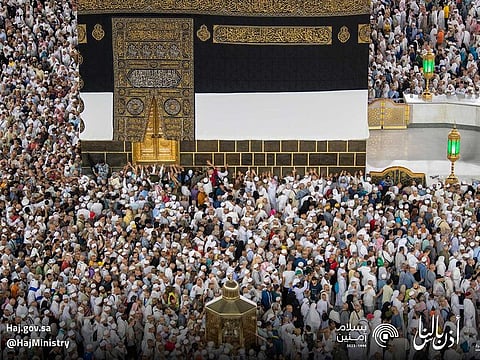UAE employees: Are you eligible for Hajj leave?
These are the Hajj leave provisions you should be aware of

Dubai: Heading for Hajj from the UAE this year? This guide equips you with everything you need to know about Hajj leave entitlements and the application process.
How many days’ leave can I take?
According to the official website of the UAE government – u.ae – a leave to perform Hajj is part of the leaves and entitlements of private sector employees. The website states that employees may be granted a special leave for performing Hajj under the provisions that the leave:
• is given without pay,
• may not exceed 30 days,
• is granted only once during the employment duration with the company.
Imran Khan, a Dubai based legal consultant spoke with Gulf News to clarify that while the UAE Labour Law does not explicitly mention Hajj and Umrah leaves, but the leave can be applied for by mutual agreement between the employer and the employee.
He added that Article 33 of the Employment Law DIFC Law No. 2 of 2019, which is applicable on companies operating in the Dubai International Financial Centre (DIFC) does mention Hajj leave as follows: "A Muslim employee, who has completed at least one year of continuous employment with an employer, shall be entitled to special unpaid leave not exceeding 21 days to perform the Hajj pilgrimage once during the period of their employment with the employer."
According to Abu Dhabi Global Market’s (ADGM) employment regulations, a muslim employee with at least one year of continuous employment with the employer is entitled to special leave not exceeding 30 calendar days without pay to perform the Hajj pilgrimage once during their employment with the employer.
How do employees apply for Hajj leave?
Employees wishing to apply for Hajj leave should follow the protocol set by their employer. In general, the process might involve the following steps:
• Request in advance: Submit a written request to the employer or through the Human Resources (HR) department well in advance, since Hajj leave can be substantial (up to 30 days) and requires planning for both the employee and the employer.
• Documentation: Provide necessary documentation that proves your intention to perform Hajj. This might include proof of Hajj registration or any relevant travel arrangements.
• Employer approval: Wait for the approval from the employer.
• Acknowledgement: Acknowledge any terms or conditions put forward by the employer regarding the leave, such as the necessity to cover certain work responsibilities before departure.
For the exact procedure and any additional requirements, it's best to refer to the company's internal leave policy or speak directly with the HR department, as the process can vary from one employer to another.
What happens when a public holiday falls during your leave?
There may be instances when you may choose to take your annual leave allocation to go for Hajj. In such a situation, the public holidays that fall during your annual leave will be considered as part of your leave, as per Article 29 (7) of the UAE Labour Law.
Are there any public holidays that coincide with Hajj leave?
Hajj takes place in the Islamic month of Dhu Al Hijjah. Two major public holidays - Arafah Day and Eid Al Adha happen during this time, from the 9th to the 12th of the month.
In the UAE, Eid Al Adha is expected to be on Friday, June 6, 2025, based on predictions from the Emirates Astronomy Society. Arafah Day, which is observed with fasting and reflection on the 9th of Dhu Al Hijjah, is expected to be on Thursday, June 5.
According to the UAE’s official holiday calendar, the public holiday for Arafah Day and Eid Al Adha will last four days, from the 9th to the 12th of Dhu Al Hijjah (1445 AH).
The article was originally published on June 8, 2024 and has been updated since.
Sign up for the Daily Briefing
Get the latest news and updates straight to your inbox



